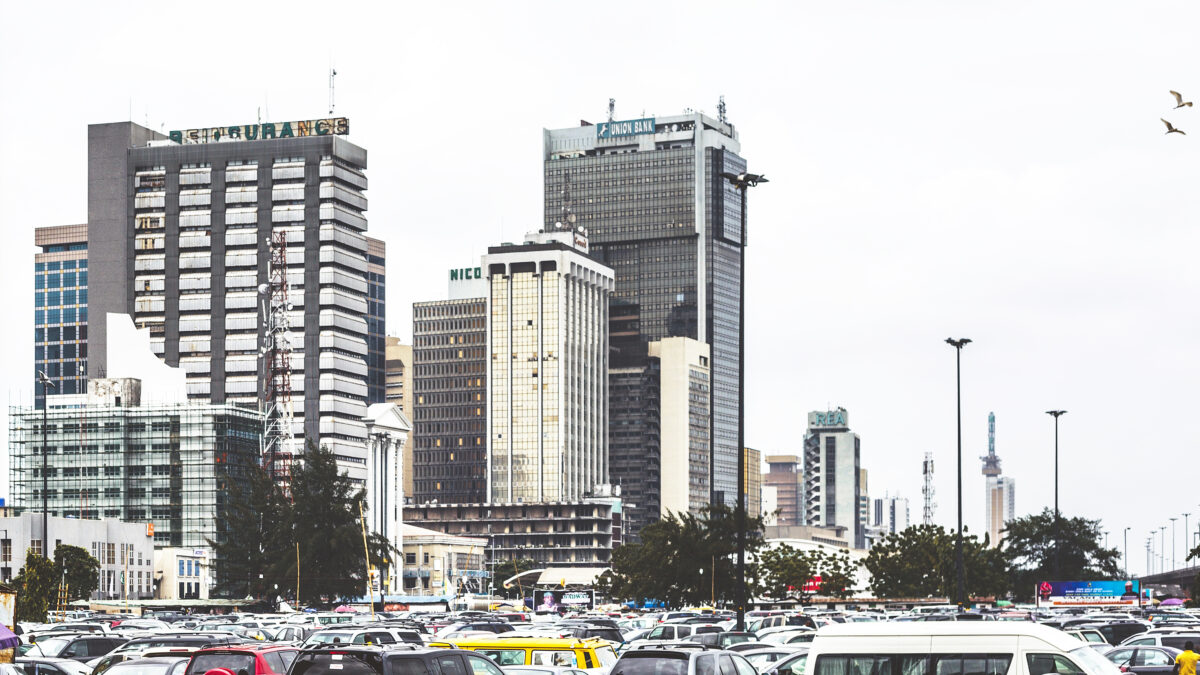Located in Western Africa lies the African continent’s largest economy and also country by population (according to the World Bank) – Nigeria. The country of over 200 million inhabitants shows not only its economic development potential but that the likes of fintech can, and is, playing a strong part in its future growth.
An Overview of Nigeria – Its Large Population and Economic Development
In terms of population, as mentioned the largest populated country – both not just in Africa but the Middle East and Africa (MEA) region as a whole – also houses many cities that are in excess of at least one million. The country’s largest city and financial hub is Lagos, which houses more than 20 million people alone, according to the National Population Commission of Nigeria. This puts it amongst the list of megacities of populations exceeding over 20 million that includes the likes of Tokyo and Mexico City. Other cities in the country that are estimated to be at least one million people include Kano, Ibadan, Benin City and Port Harcourt. The country’s capital is actually Abuja – which has been the capital of the country since it was moved from Lagos in 1991. Seven cities in the country such as those mentioned have at least one million inhabitants and 80 in the country are between 100,000 up to one million such as Abuja – showing again the sheer scale and size of Nigeria as a whole in terms of population.

As in many parts of the wider MEA region, such as countries in the Gulf Cooperation Council (GCC) region such as Saudi Arabia or other fellow African countries like Angola, Nigeria relies historically on oil as a main driver of its economy. However, according to The World Factbook by CIA.gov, after the 2008-09 global financial crisis, there were various changes that have begun a path towards economic diversification. For instance, the country’s banking sector was recapitalised with enhanced regulations. This has seen a growth in sectors in Nigeria such as agriculture, telecommunications, and services.
The aspirations towards an economy less reliant on oil can be seen as mentioned in its growing financial services industry. Lagos is home to a large financial services sector and banks, such as First Bank of Nigeria, Access Bank, Ecobank and First City Monument Bank (FCMB). In terms of the top ten largest banks in Africa, when measuring assets which was researched by The Fintech Times, Nigeria’s own Zenith Bank is the only bank ranked at ninth place – joining the ranks of other banks such as South Africa’s Standard Bank, Nedbank, Absa, FirstRand as well as Egypt’s National Bank of Egypt.
How Fintech Plays a Wider Part in the Digital Aspirations of Nigeria
There were various facts discovered and highlighted in the recent Fintech: Middle East and Africa 2021 Report when highlighting Nigeria. First, in terms of tech as a whole, the country and Lagos in particular is home to various startup incubators. The country is estimated to have at least 3,300 tech companies.
40 per cent of the population of Nigeria is financially excluded, giving Nigeria significant opportunities for fintechs across the consumer spectrum, according to original research and report by McKinsey. In addition, according to a report from Deloitte, the country’s insurance penetration is a lowly 0.4 per cent. Therefore, there is much of the population that can benefit and wider fintech solutions could help. There has been an array of activity happening in Nigeria’s fintech ecosystem seeing various regulatory and other changes.
Recent highlights in the space include: First, with regards to a regulatory sandbox, last year saw the Securities and Exchange Commission announced it is working towards setting up a regulatory sandbox. Second, in terms of mergers and acquisitions – US-based Stripe acquired Nigeria’s Paystack for $200million. Another headline this year – albeit controversial – was that the Central Bank of Nigeria (CBN) released a statement that forbid financial institutions to deal with local cryptocurrency exchanges, as well as ordering shutting down of accounts of crypto traders. The ladder has not been unique to Nigeria but globally as the growth of crypto and its interest and volatility can be seen by some to be welcoming news in terms of any regulation or clampdown. However, for traders the views are often not shared. Nigeria is one of the world’s largest bitcoin markets.

It is estimated that Nigeria’s fintech landscape consists of around 250 fintechs. From 2014 and 2019, Nigeria’s fintech scene raised more than $600million in funding, which attracting 25 per cent ($122million) of the $491.6million raised by African tech startups in 2019 alone, which was the second-highest after Kenya at $149million – originally from the same McKinsey report. Examples of Nigerian fintechs include the likes of Interswitch (which is estimated to be Nigeria’s first unicorn), Piggyvest, Kudabank, Carbon, Remita, Flutterwave, and Chipper Cash. From Frost and Sullivan, Nigeria’s fintech revenue is expected to reach $543.3million in 2022, a growth from $153.1million in 2017.
It is important to note the wider ecosystem that supports fintech in the country. For instance, in terms of regulations, in addition to the CBN and SEC, other players include the Nigerian Deposit Insurance Corporation (NDIC), National Insurance Commission (NAICOM), Nigerian Communication Commission (NCC) and National Information Technology Development Agency (NITDA).
With respect to associations there is the Fintech Association of Nigeria, which is “an umbrella body for fintechs in Nigeria that connects stakeholders, accelerates fintech growth and advocates for an adequate environment for a thriving fintech ecosystem with the vision to make Nigeria one of the world’s leading markets for fintech innovation and investment. With more than 200 members across 20 sectors of the economy, arrowhead for fintech regulation, accessible funding and availability of sufficient and employable digital skills among others;” it is a member of the Africa Fintech Network. There are also events that celebrate the country’s innovations in the space such as Nigeria Fintech Week.
Other players supporting the ecosystem include other parts of the ecosystem both in fintech and tech such as even in the media, where Nigeria both TechCabal and Coinnewsextra are also tell the story of innovations in their respective country and beyond across the rest of the continent.
As in other emerging economies, Nigeria does have its own challenges – as highlighted for instance with access to financial services. Nevertheless, the Fintech Times report did highlight Nigeria as an emerging fintech hub – which plays in large part to its size, innovations and wider aspirations that are tangible – both from a wider economic development angle and a tech and fintech-specific one. In fact, in recent memory Nigeria – alongside Kenya, South Africa and Egypt – are usually known as the four largest African fintech hubs. As researched in the report as well, the four countries also included Ghana, Rwanda, Mauritius, and Tunisia as well as Uganda, Morocco, Senegal and Tanzania.
There are still other opportunities for Nigeria to further foster its ecosystem in fintech and it has begun to do so. The country is just large enough (the largest country in MEA by population and one of the largest in the world) that fintech has huge potential to cater both to its professional class and the majority of the population – the working class and poor. Its emerging hub status plays a strong part in its further economic development and diversification.


